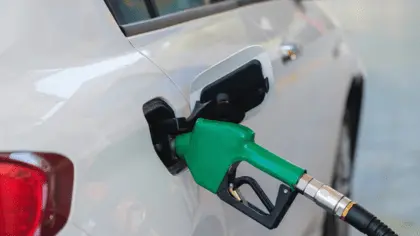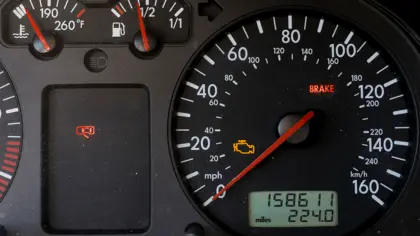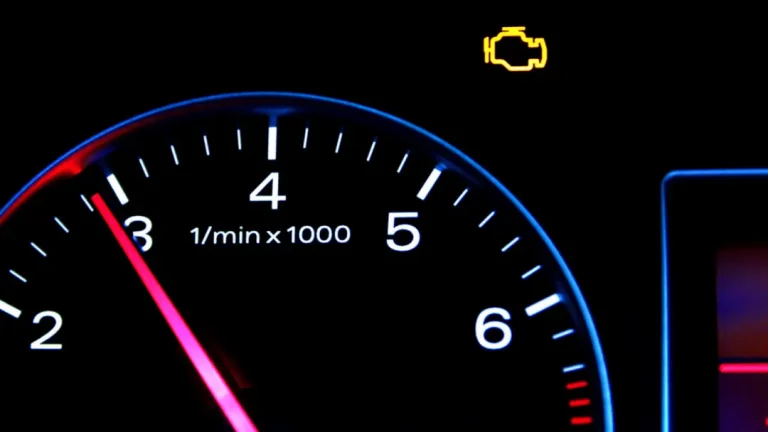If your car’s check engine light is on, and you’re wondering if premium gas might be the culprit, you’re not alone. Many drivers have experienced this problem and have turned to premium gas as a potential solution. So, does premium gas really make the check engine light go off?
The answer is maybe. If your car is designed to run on premium gas, then using a lower-grade gas can cause the check engine light to come on. This is because the lower grade gas doesn’t contain the same amount of cleaning agents as premium gas, and over time, this can cause build-up and deposits in the engine. If you switch back to premium gas, the light should go off.
However, for a car that is designed to run on regular gas, using premium gas won’t have any effect on the check engine light. In this case, the light is likely being caused by something else, such as a loose gas cap or a faulty sensor.
If you’re not sure what grade of gas your car requires, consult your owner’s manual or ask a mechanic. In the meantime, if your check engine light is on and you’re using premium gas, it’s worth a try switching back to regular gas to see if the light goes off.
Also Read: Subaru Check Engine Light Reset
Can premium gas help fix engine problems?
There’s no denying that premium gas is a high-quality fuel. But just because it’s a high-quality fuel doesn’t mean that it can magically fix engine problems.
If your check engine light is on because of a problem with your ignition system, for example, premium gas isn’t going to do anything to fix the issue. The same is true if your check engine light is on because of a problem with your engine’s sensors or computer system.
In short, premium gas can’t fix every problem that might cause your check engine light to come on.
What are the benefits of using premium gas?

There are many benefits of using premium gas in your vehicle. The most obvious benefit is that it will improve your vehicle’s performance. Benefits of using premium gas on below:
1. Improved Engine Performance
Your engine will run more efficiently and smoothly when you use premium gas. The higher octane rating of premium gas prevents knocking and pinging, which can damage your engine.
2. Cleaner Engine
Over time, premium gas can actually clean your engine and improve its overall performance. The higher octane rating of premium gas helps to prevent deposits from forming on your engine’s valves and injectors.
3. Better Fuel Economy
While the price of premium gas is higher than regular gas, you may actually save money in the long run by using it. That’s because your vehicle will run more efficiently on premium gas, which means you’ll get more miles per gallon.
4. Extended Engine Life
By using premium gas, you can actually extend the life of your engine. That’s because the higher octane rating of premium gas helps to prevent knocking and pinging, which can damage your engine over time.
5. Smoother Ride
Not only will your vehicle’s engine perform better when you use premium gas, but you’ll also enjoy a smoother ride. That’s because the higher octane rating of premium gas helps to prevent knocking and pinging, which can make your ride feel rough.
6. Fewer Emissions
Premium gas can actually help to reduce emissions from your vehicle. That’s because the higher octane rating of premium gas helps to prevent knocking and pinging, which can cause your engine to emit more pollution.
So, if you’re looking for a way to improve your vehicle’s performance and extend its life, consider using premium gas. You may be surprised at the difference it makes.
What should you do if your check engine light comes on?

If your check engine light comes https://madisonrising.com/toyota-3-5-v6-engine-problems/on, the best thing to do is to take your vehicle to a qualified mechanic or dealership service department for diagnosis and repair.
In some cases, the problem that caused the check engine light to come on may be something that you can fix yourself. But in other cases, the problem may be something that requires professional diagnosis and repair.
Furthermore, it’s important to have the problem diagnosed and repaired as soon as possible to avoid further damage to your vehicle.
So, while premium gas may be a high-quality fuel, it’s not going to do anything to fix engine problems. If your check engine light comes on, take your vehicle to a qualified mechanic or dealership service department for diagnosis and repair.
Frequently Asked Questions
1. What happens if you put 93 gas in a 87 car?
If you put 93 gas in a 87 car, the car will run a little bit more smoothly since the higher octane rating of the gas will allow the engine to run more efficiently. However, it is not recommended to do this on a regular basis as it will ultimately lead to higher fuel costs.
2. Is it bad to put premium gas in a regular car?
No, it is not bad to put premium gas in a regular car. In fact, the car will actually run a bit more efficiently since the higher octane rating of the gas will allow the engine to run more smoothly. However, it is important to note that you will ultimately end up paying more for fuel if you regularly use premium gas in a regular car.
3. How long does it take for engine light to reset after gas cap?
If the engine light is on due to a loose gas cap, it should reset itself after a few minutes of driving. However, if the engine light is on for another reason, it will likely stay on until the problem is fixed.
4. What is the most common reason for check engine light?
The most common reason for the check engine light to come on is a faulty oxygen sensor. Other common reasons include a loose gas cap, a misfire, or a problem with the emissions system.
5. How many miles do you have to drive to clear a check engine light?
There is no set number of miles that you have to drive to clear a check engine light. However, if the light is on due to a loose gas cap, it should reset itself after a few minutes of driving. If the light is on for another reason, it will likely stay on until the problem is fixed.
Final Verdict
If your car’s check engine light is on and you’re using premium gas, it’s worth a try switching back to regular gas to see if the light goes off. If your car is designed to run on premium gas, then using a lower-grade gas can cause the check engine light to come on. However, if your car is designed to run on regular gas, using premium gas won’t have any effect on the check engine light.

